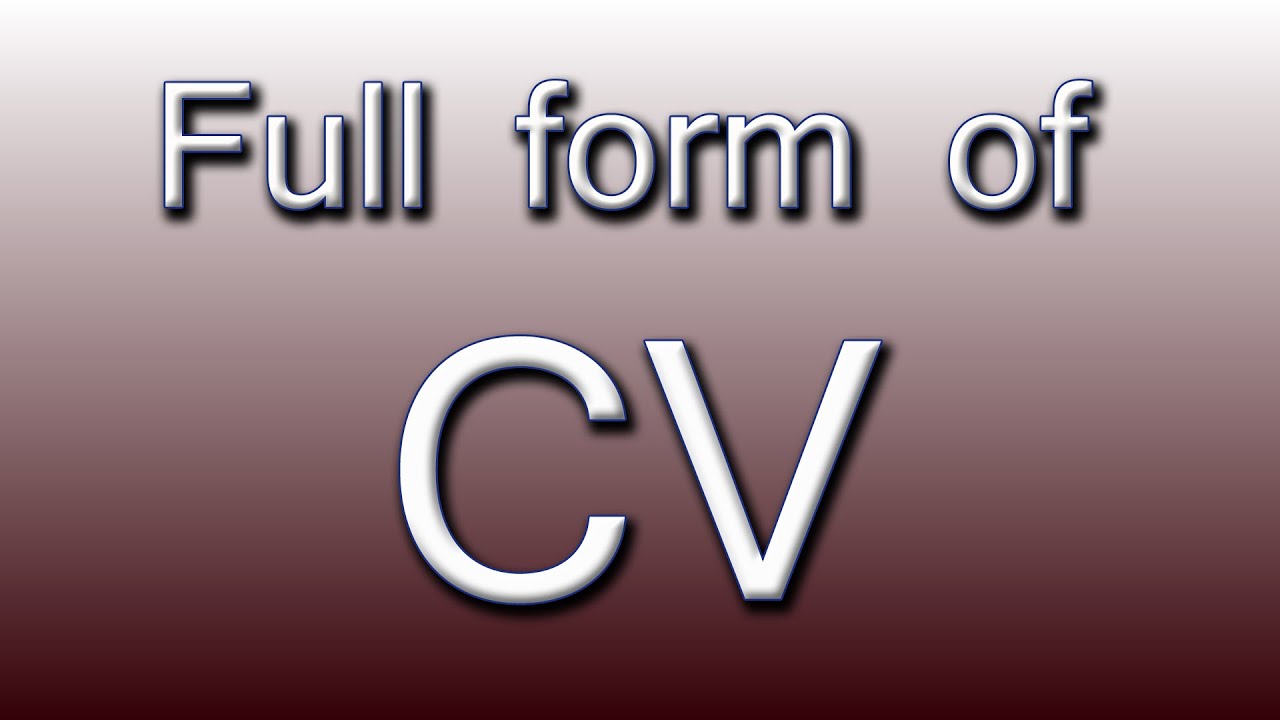CV Full Form?
The full form of CV is Curriculum Vitae. A CV is a detailed document that outlines an individual’s educational background, professional experiences, skills, and achievements. It is often used when applying for academic, research, or international job positions, especially where a deeper understanding of the applicant’s credentials is required.
Unlike a resume, which is typically brief and job-specific, a CV provides a comprehensive profile. It can include:
- Full name and contact information
- Educational qualifications and degrees
- Professional experiences (jobs, internships, projects)
- Awards, honors, and scholarships
- Research work, publications, or papers (if any)
- Technical and soft skills
- Languages known
- Hobbies and interests
- Career goals
- Marital status (optional)
In many countries, especially outside the U.S. and Canada, the CV is the first document a recruiter reads to evaluate a candidate’s fit. It is often followed by an interview process.
Key Tips for Writing a CV
- Avoid including photographs, salary history, references, or reasons for leaving a job—unless requested.
- Keep it relevant and avoid filler content.
- Limit to 1–2 pages in countries like the UK and Ireland unless applying for academic or research roles.
- Use clear formatting and a professional tone.
- Tailor your career objective and highlight achievements, not just responsibilities.
Difference Between CV and Resume
| Feature | Curriculum Vitae (CV) | Resume |
| Length | No fixed length; can span multiple pages | Limited to 1–2 pages |
| Content | Covers full academic and professional background | Highlights only job-specific, relevant experiences |
| Purpose | Used for academic, teaching, research, or scholarships | Used for job applications in business, government, and nonprofits |
| Customization | Remains mostly the same across applications | Can be tailored for each job role |
| Includes | Publications, conferences, awards, and detailed history | Concise professional summary with focused job experience |
🎓 Interactive Quiz: What Do You Know About CVs?
Question 1: What is the full form of CV?
- Career Value
- Curriculum Vitae
- Certified Validation
- Current Verification
✅ Correct Answer: B) Curriculum Vitae
Question 2: Which of the following is NOT usually included in a CV?
- Educational Qualifications
- Professional Experience
- Salary History
- Skills
✅ Correct Answer: C) Salary History
Question 3: In which field is a CV most commonly used?
- Retail Sales
- Academic or Research Roles
- Factory Work
- Customer Support
✅ Correct Answer: B) Academic or Research Roles
Question 4: Which statement best describes the difference between a CV and a resume?
- CVs are shorter than resumes.
- Resumes are used only in academia.
- CVs cover comprehensive academic and professional details.
- Resumes include publications and research papers.
✅ Correct Answer: C) CVs cover comprehensive academic and professional details.
Question 5: True or False
A CV must always be customized for every job role like a resume.
✅ Correct Answer: ❌ False — A CV generally remains the same across roles unless you’re updating it with new achievements.
🏁 Results:
- 5/5 — CV Mastermind! 🧠
- 4/5 — Great job, you know your stuff!
- 3 or below — Time to scroll back up and sharpen those career skills! 😉
Conclusion
In summary, Curriculum Vitae (CV) is a vital document in professional and academic spheres. Whether you’re applying for a PhD, a fellowship, or a job abroad, a well-crafted CV can showcase your strengths, commitment, and qualifications in a structured and impactful way. Understanding how to differentiate it from a resume will help you choose the right format depending on your career goals.
PCS Full Form
PCS stands for Provincial Civil Service. Their duties include overseeing departments, supervising field operations, and handling public grievances. The PCS cadre is pivotal in maintaining law and order, executing developmental projects, and facilitating efficient public service delivery.
BTS Full Form
What Does BTS Stand For?
BTS most famously refers to the global K‑pop sensation whose name originates from the Korean Bangtan Sonyeondan (방탄소년단), meaning “Bulletproof Boy Scouts.” Debuting in 2013, they later adopted the English brand identity “Beyond the Scene” in 2017 to reflect growth and global ambition. Beyond music, “BTS” is widely used online to mean “behind the scenes”, especially in social media posts showing candid, backstage moments. In texting slang, it can also mean “be there soon”, among other niche uses.






[…] CV Full Form is “Curriculum Vitae.” A CV is a comprehensive document that outlines an individual’s educational background, work experience, skills, and achievements. Unlike a resume, which is typically a summary, a CV provides a detailed overview of one’s professional journey. It is commonly used in academic, medical, and research fields when applying for positions, grants, or further studies. A well-crafted CV showcases a candidate’s qualifications and helps them stand out in competitive job markets. When creating a CV, it’s essential to tailor the content to highlight relevant experiences and skills that align with the desired opportunity. […]
[…] CV Full Form […]